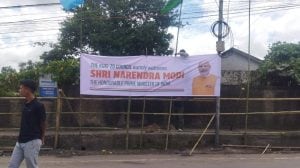SC says coal blocks allotment flawed,asks govt to explain
The CBI report discloses there was absolutely no uniform policy or pattern followed.
In fresh trouble for the government in the coal blocks allotment controversy,the Supreme Court Tuesday said the allotments,prima facie,seem to be arbitrary and irrational and the procedures adopted do not appear to be proper and legal.
Pointing out what it called a huge loss to the exchequer and a new dimension added by the CBIs investigation,a bench led by Justice R M Lodha questioned the manner in which 1,950 applications for coal blocks were rejected while approving applications by 151 firms for 68 blocks between 2006 and 2009.
For what reasons 1,950 applications were found ineligible is anybodys guess. You will have to tell us whether among the applicants the consideration was objective or simply pick and choose, the bench asked Attorney General G E Vahanvati.
Warning that the entire allotment could be scrapped if no parameters were adopted for allotment,the court said it would not go into individual cases but would certainly want to know if there was a well-defined and structured policy or not.
The procedure the government is talking about,prima facie,does not seem to be proper and legal, the bench said,asking Vahanvati to explain another fundamental question as to why the policy of competitive bidding,decided in 2004,was not implemented until 2012.
Hearing PILs by lawyer M L Sharma and NGO Common Cause,the court relied on the CBIs inquiry report submitted as per its last order. Citing the report,the bench said the CBI has found there was no system in place to verify the vital facts and claims of a company regarding its track records,financial strength and preparedness.
Several companies got coal blocks on misrepresentation and that records pertaining to the allotment of 53 coal blocks did not reveal the rationale behind recommending or not recommending a particular entity,according to the CBI.
The CBI report discloses there was absolutely no uniform policy or pattern followed. You could have acted in accordance with the law and a policy but its implementation has been found to be prima facie flawed by the CBI, the bench said.
Vahanvati said the CBI could not be the final word on it and that he would file an additional affidavit,explaining the rationale of every decision taken by the government since 1973.
At one stage of the hearing,the bench asked Vahanvati to take care that his argument against the criminal conspiracy angle did not pre-empt the CBIs probe since it could have a direct or indirect impact on the agency. Vahanvati assured that he was not in any manner prejudicing the probe and that all he wanted was to satisfy the court on all its queries relating to the validity and legality of the allotment mechanism.
We are looking into all the aspects of the matter. An inter-ministerial committee has also been formed. There was a valid procedure of allocating the coal blocks and states did participate in the process, said Vahanvati,who had been asked at the last hearing to explain the Centres authority to make allotments since coal was a state mineral.
The court,however,told Vahanvati that the Centre would have to explain all facts in the CBI report and gave him three weeks to file an additional affidavit,detailing all its policy decisions and rationale of changing policies at different times,parameters of allowing and dismissing an application for allotment,among others.
It set April 30 for hearing the matter on the legality of the allotment and said the other issue relating to the criminal investigation by the CBI will be taken up later.
It,however,asked the CBI to file its next status report by April 26,along with its directors affidavit,endorsing its counsels submission that he had examined the reports and that investigation details are not being shared with political persons.
Photos



- 01
- 02
- 03
- 04
- 05




























